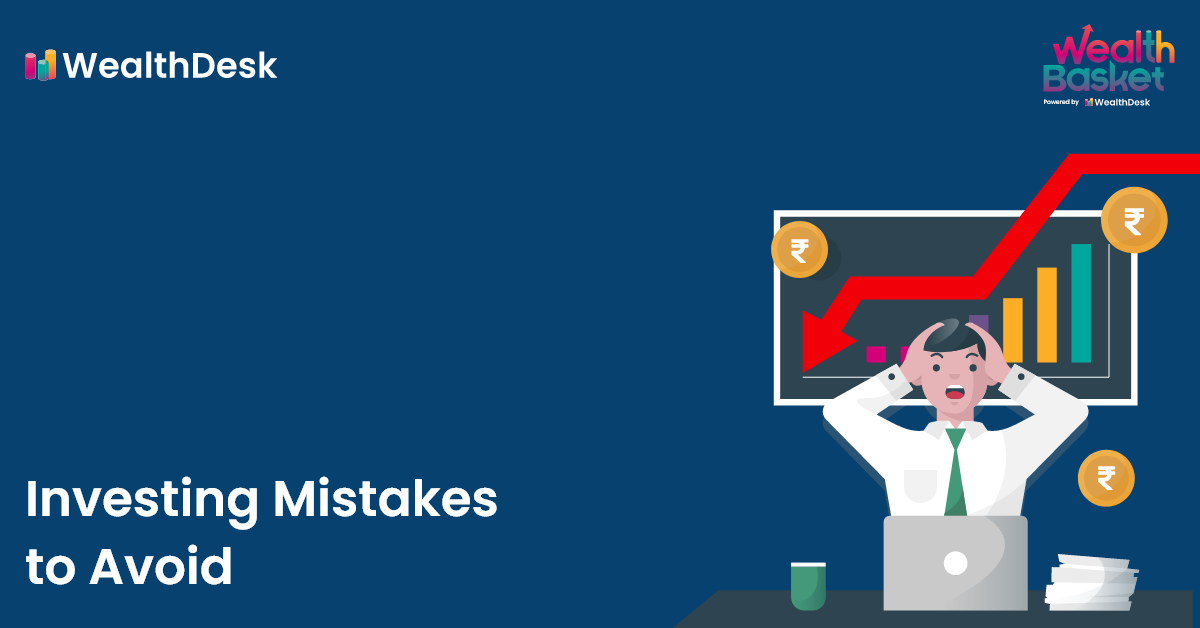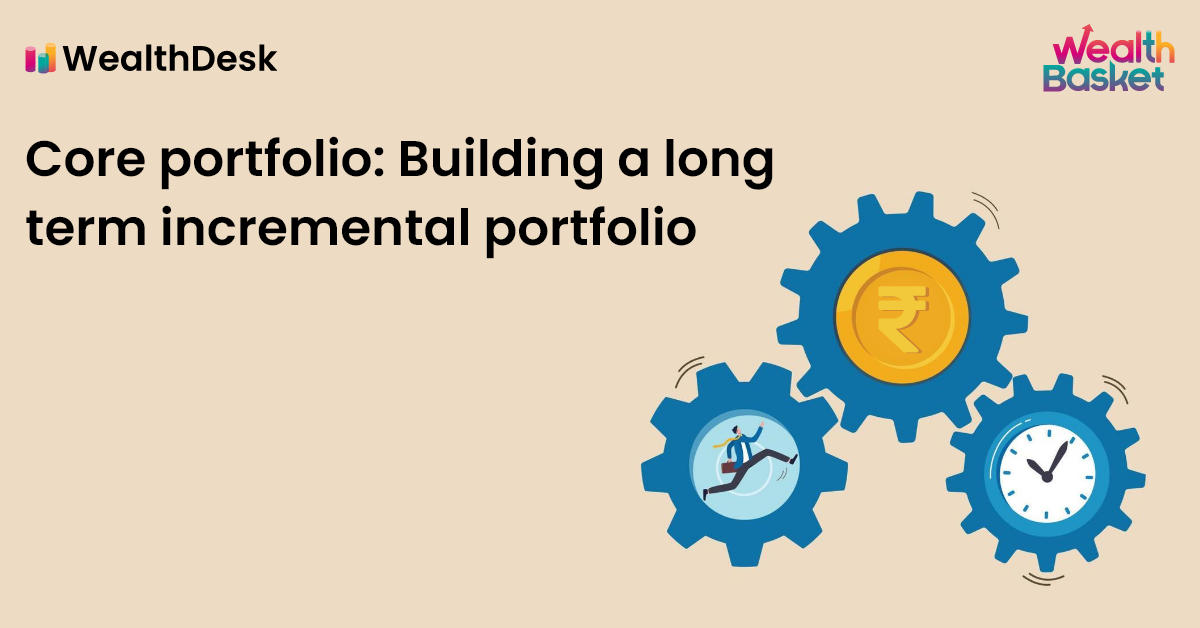“Mistakes are our best teachers.
Never be afraid to commit a mistake.”
These are words of wisdom we often come across in life. However, experts always advise treading with caution when talking about stock market investments. This is all the more true for novice and dormant investors.
New investors have rushed to the stock market during the pandemic, eager to test the waters. The stock market had gone down, resulting in a worldwide share price fall. Now, the stock markets are touching new highs regularly. Moreover, a majority of people now have more time and money to invest in the stock market. People have been further encouraged by other factors. Broking firms have started offering Demat accounts with minimum requirements. They have also started waving off trading commissions. The conditions have been perfect for people with no knowledge in investment to join this bandwagon.
As investor activity is on the rise, improving financial literacy is important. To contribute to this, we discuss 8 common investment mistakes that investors make.
8 Common Investing Mistakes
1. Insufficient understanding of the business
Investing in the stock market without a thorough understanding of the business is a common mistake. Understanding the business is essential for investing. Investors may be influenced by social media trends, performance in the short term, or even personal bias. It is wise to diversify your investments through ETFs and mutual funds for avoiding such mistakes. Bundled investment portfolios like WealthBaskets are a wise investment option.
2. Importance of portfolio diversification
A diversified portfolio is your answer to balance risks and returns in any market condition. An adequately diversified equity portfolio should have asset allocations across sectors. You can also include ETFs and mutual funds in your portfolio for diversification. Seasoned investors can think of generating alpha in the short term by focussing their investments on a selected few options. However, exposing assets to such a limited selection is not advisable for retail investors in general. The slightest market fall can prove to be ruinous to a concentrated investment spread. At the same time, excessive diversification can also hurt your returns.
Excessive trading commissions and short-term market factors are the adverse effects of extreme diversification. Diversifying through Mutual Funds and ETFs is a safe approach. It helps to balance risk and returns in the long run. Selecting WealthBaskets is a feasible and intelligent option for retail investors to invest in a diversified portfolio.
3. Not thinking long term
“Slow and steady wins the race.” This is the best investment advice anyone can ever give. The best investments are about giving your assets enough time to grow into expected returns. Having unrealistic expectations from your portfolio will almost always prove to be disastrous to your investment goals. Short-term goals can also lead to trading too often, leading to greater risks and larger transaction fees. Thinking long term is your answer to negate the volatility of the stock market in the short term.
4. Not setting clear cut investment goals
Why do you want to invest? If it is only for the sake of making more money. Then you may need to reconsider your investment goals. Money should be considered as an instrument to help you realise your life goals. House, car, marriage, children’s education, their marriages, retirement funds, general contingency funds are some life goals to plan your investments around.
Setting out on an investment journey without a proper goal in mind means running into unforeseen, uncompensated risks. Laddering your investment goals from your life goals will help you determine a comprehensive investment plan. Clear-cut investment goals will also help you focus on building a portfolio that stands a better chance at achieving long-term objectives.
5. Trying to predict the market
The stock market can be an unpredictable place. High-performing shares can end up losing very quickly. Predictive investment is hazardous and needs comprehensive knowledge of markets, sectors, and individual securities. People who are not experienced in stock market investing should go for consistency rather than trying to predict the performance of securities.
6. Not considering the effects of inflation
A higher inflation rate hurts the stock market. Inflation depreciates the purchasing power of money and increases the borrowing cost. Adjusting for inflation over a tenure means diminished expected returns. It is the most detrimental factor on your real returns versus nominal returns. Not considering the effects of inflation is a common mistake made by inexperienced investors. Factoring for inflation is a relatively easy process and requires perseverance and discipline.
7. Not monitoring the performance of your investments
A diversified portfolio ensures the adequate balancing of risks and returns over a tenure. However, a diversified portfolio requires constant monitoring to meet its return objective. A diversified portfolio may look very different over time. Some securities may exceed expectations, while the performance of others may be below par.
Ensuring that the portfolio performs as per its objectives requires constant monitoring and rebalancing. Mobile apps, Robo advisors, brokerage firms, trading journals, and DIY methods are some of the best investment practices to monitor your portfolio. In addition, bundled investment portfolios consisting of equities and ETFs, like WealthBaskets, are intelligent investment options. These portfolios are constantly monitored and rebalanced against changes in the market by top SEBI registered experts in the country.
8. Making emotional decisions
Emotions can often influence investments, especially those tied to life goals. It is only natural for human beings to be influenced by apprehensions about their future. However, emotions should not weigh down decision-making. Instead, it is advised to focus on long-term growth. The best investment plans consider all foreseeable market factors and have a higher probability of meeting expected returns.
Conclusion
Investments in the stock market may often seem like forecasting the future. It is a rigorous process that requires discipline, patience, and perseverance. Unfortunately, It’s all too common for mistakes to creep in. Investors short on experience must be extra careful. However, getting acquainted with the common errors helps build a long-term plan. With WealthBaskets, retail investors can avail of advisory services from the leading SEBI registered experts in the country at nominal advisory fees. The experts constantly monitor and balance the WealthBaskets against market changes.
WealthBaskets are available on all top broking platforms in India. WealthBaskets are fast becoming the most endorsed investment vehicle for retail investors, irrespective of their experience level and risk-return objective. Let us know what you do to negate the effects of common mistakes on your return objectives.
FAQs
There is no pre-defined tenure that separates long-term investments from short-term investments. Common investment knowledge dictates five years and above to be long-term investments. A more practical way would be to connect your investment with life goals. This will give you an understanding of when you need the funds, and you can plan the asset allocation accordingly.
There are many long-term investment options. Let us consider equities, ETFs, mutual funds, and WealthBaskets powered by WealthDesk. Stocks don’t require management, can be easily liquidated, and provide extensive diversification options but require lots of analysis. Mutual funds are actively monitored. Only 22% of mutual funds outperformed the underlying market index recently. ETFs are passively managed and closely match an underlying index. They invest in top-performing companies and provide diversification across sectors and market capitalisation. WealthBaskets are monitored by SEBI registered experts. They are thematically curated, regularly monitored, and rebalanced against market changes.
Constantly monitoring your investment is essential to meet your investment goals over time. Over time some of your invested assets will perform below expectations. Regularly monitoring and rebalancing your portfolio will help you identify the low-performing assets, keep your investments on track according to your goals.
Effects of inflation can be disastrous to equity performance. Market fall leads to a fall in the expectations of growth in your investments. At the same time, the borrowing cost increases. As a result, companies incur losses because of higher prices, while the interest rates on debt increase.


















